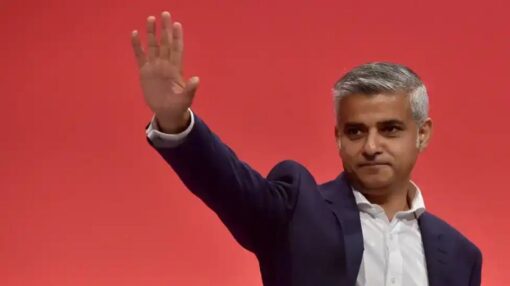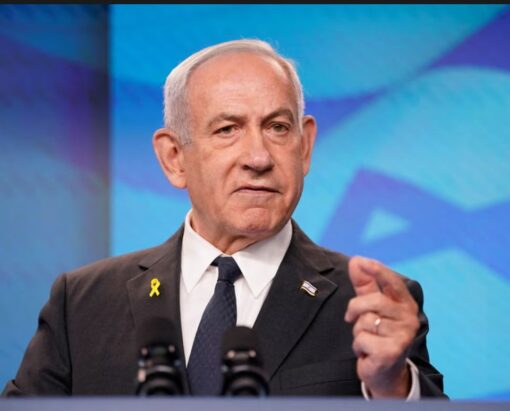The halls of diplomacy are never short of surprises, but few encounters in recent memory have stunned observers quite like the face-to-face meeting between Syrian President Ahmed al-Sharaa and retired US General David Petraeus, the man who once captured him during the height of America’s war in Iraq.
What began as a bitter story of insurgency, imprisonment, and enmity has now evolved into an almost surreal moment of dialogue at the Concordia Annual Summit in New York, held on the sidelines of the United Nations General Assembly.
Taking the stage together before an audience of global leaders, business executives, and policy experts, both men acknowledged the peculiarity of the moment.
Petraeus, who commanded US forces during the invasion of Iraq, oversaw the operation that led to al-Sharaa’s arrest in 2006. At the time, the young insurgent commander was accused of fueling violent resistance against American forces, earning him a ten-year stint behind bars until his release in 2011.

Today, however, the two adversaries found themselves in conversation rather than combat, with al-Sharaa leading a war-scarred nation and Petraeus reflecting on the transformation of a onetime enemy into a head of state.
Al-Sharaa’s political journey has been as dramatic as it has been unlikely. Following his release, he emerged as a fierce opponent of Bashar al-Assad, forming the al-Nusra Front in 2012.
The group later severed ties with al-Qaeda before merging into Hayat Tahrir al-Sham, which al-Sharaa led through some of the darkest years of the Syrian conflict. Long labeled a terrorist by Washington, al-Sharaa was hunted, sanctioned, and even carried a $10 million bounty on his head until just months ago.
Yet his insurgency against Assad culminated in victory, toppling the Assad dynasty’s 50-year rule in late 2024. By January 2025, Ahmed al-Sharaa was sworn in as Syria’s new president, leading what many in the region view as both a fragile hope and a dangerous gamble.
The timing and venue of the encounter carried symbolic weight. Al-Sharaa arrived in New York as the first Syrian leader to attend the UN General Assembly in nearly six decades, making history simply by showing up.
His delegation met with world figures including US Secretary of State Marco Rubio, signaling a willingness to engage with Washington despite years of hostility.
The Concordia Summit offered the perfect stage for an improbable reunion, one that underscored how quickly geopolitical realities can shift when power changes hands.
For Petraeus, the encounter was not just a reunion with an old adversary but an acknowledgment of al-Sharaa’s transformation.
“His trajectory from insurgent leader to head of state has been one of the most dramatic political transformations in recent Middle Eastern history,” Petraeus told the audience, later admitting he counted himself among al-Sharaa’s “many fans.”
The former general even expressed concern for the Syrian leader’s well-being, asking whether he was getting enough sleep as he juggled war, diplomacy, and governance. Al-Sharaa responded with a smile, noting that combat veterans often understand better than anyone else the value of peace.
For Syrians, the symbolism of this Syrian President meeting is complex. Many remember al-Sharaa’s years as an armed commander, his alliance shifts, and his role in sectarian violence.
Yet others view his rise as a moment of national defiance against decades of dictatorship. Addressing questions about Syria’s bloody past, al-Sharaa admitted that “mistakes” were made on all sides but insisted that the priority now is national unity, reconstruction, and the establishment of a government that protects all communities, including Kurds and religious minorities.
In his remarks, al-Sharaa made clear that sanctions remain one of the biggest obstacles to Syria’s recovery. He repeated his call for the US Congress to repeal the Caesar Syria Civil Protection Act, arguing that punishing civilians only prolongs instability.
He also emphasized that while the Kurdish population deserves constitutional protection, no armed group could be allowed to exist outside the authority of the state.
Perhaps most striking were al-Sharaa’s comments on Israel. He noted that Syria has endured over a thousand Israeli strikes since Assad’s fall and continues to face the unresolved question of the occupied Golan Heights.
Yet he surprised many by revealing that his government is engaged in quiet security talks with Israel, based on the US-mediated disengagement framework of 1974, aimed at avoiding further war. His message was clear: rebuilding Syria requires dialogue, even with old enemies.
Petraeus, listening carefully, seemed to echo this sentiment. By sharing a stage with the man he once imprisoned, he underscored the belief that adversaries can evolve into dialogue partners when the stakes demand it.
That does not erase years of conflict, nor does it resolve the deep mistrust between Washington and Damascus, but it does create a new space for cautious engagement.
The optics were not lost on other powers. Russia, which has been Syria’s closest ally, reportedly reacted coolly to the symbolism of al-Sharaa’s handshake with Petraeus, concerned that Damascus might begin edging toward a more independent path.
Tehran, too, watches uneasily, fearing that renewed dialogue with Washington could dilute Iran’s influence in Syria. For both allies, al-Sharaa’s appearance alongside Petraeus served as a reminder that loyalty in the Middle East is often negotiable, and history’s bitterest enemies can, under shifting circumstances, find room for pragmatic diplomacy.
Internationally, the encounter raised deeper questions about reconciliation and legitimacy. European governments remain divided on whether to embrace al-Sharaa or maintain a hard line over his militant past.
Human rights groups continue to demand accountability for war crimes committed during the conflict, even as political leaders acknowledge the necessity of engaging Syria’s new government to stabilize the region.
In Washington, the debate is even sharper: some argue that talking to al-Sharaa rewards violence, while others insist that refusing dialogue only cedes the ground to Russia and Iran.
For ordinary Syrians, the scene in New York was almost unimaginable. A president who once languished in American custody now standing shoulder to shoulder with a former US general, both of them exchanging smiles and reflections on peace.

To many, it was proof that survival and power in the Middle East are less about ideology and more about endurance. To others, it was a troubling reminder of how quickly the world forgets old wounds when strategic interests shift.
As the applause faded at the Concordia Summit, one image lingered: Ahmed al-Sharaa, once branded a fugitive, now a head of state, shaking hands with David Petraeus, the man who captured him nearly twenty years ago.
In that handshake was not just history but possibility—the possibility that today’s enemies might one day sit as equals, and that even the darkest conflicts can yield to the strange pragmatism of politics.
Whether that possibility grows into genuine progress or remains a fleeting moment of theater will depend on what follows.
For now, the Syrian President meeting has entered the annals of modern diplomacy as one of its most improbable chapters.
A onetime insurgent turned president, a onetime general turned statesman, and a world eager to see whether such encounters can carve out a path to stability in a region still wrestling with the ghosts of war.
Stay updated at swiftreportnow.


